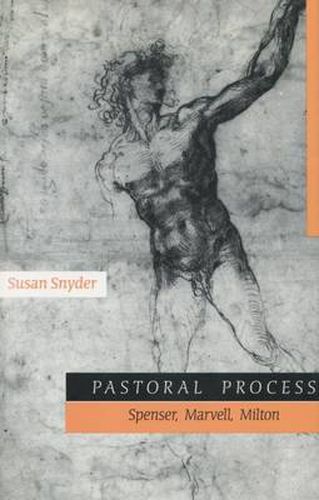Readings Newsletter
Become a Readings Member to make your shopping experience even easier.
Sign in or sign up for free!
You’re not far away from qualifying for FREE standard shipping within Australia
You’ve qualified for FREE standard shipping within Australia
The cart is loading…






Pastoral Process draws a basic distinction between two aspects of the pastoral ideal: the Arcadian pastoral, which locates the unspoiled paradise in space, apart from the complexities of city and court, and finds it accessible for limited periods of recuperation and reorientation; and the Golden Age mode, which locates the ideal pastoral life in time gone by, always already lost as soon as it is apprehended as paradise. The author s central aim is an archaeology of the nostalgia-based pastoral of the vanished Golden Age. On the surface level, her close readings of certain Renaissance poems and sequences Spenser s Shepheardes Calender, Marvell s Mower poems, and Milton s Lycidas clarify pastoral process: the dislocating transition from innocence to experience, from secure centeredness in a comfortable, self-mirroring world to a new condition of division, displacement, and alienation. The advent of individuation and sexual desire, and the internalization of undirectional time and universal death, transform the pastoral paradise into a wasteland or leave the newly self-conscious protagonist outside his former idyll, looking in.
$9.00 standard shipping within Australia
FREE standard shipping within Australia for orders over $100.00
Express & International shipping calculated at checkout
Pastoral Process draws a basic distinction between two aspects of the pastoral ideal: the Arcadian pastoral, which locates the unspoiled paradise in space, apart from the complexities of city and court, and finds it accessible for limited periods of recuperation and reorientation; and the Golden Age mode, which locates the ideal pastoral life in time gone by, always already lost as soon as it is apprehended as paradise. The author s central aim is an archaeology of the nostalgia-based pastoral of the vanished Golden Age. On the surface level, her close readings of certain Renaissance poems and sequences Spenser s Shepheardes Calender, Marvell s Mower poems, and Milton s Lycidas clarify pastoral process: the dislocating transition from innocence to experience, from secure centeredness in a comfortable, self-mirroring world to a new condition of division, displacement, and alienation. The advent of individuation and sexual desire, and the internalization of undirectional time and universal death, transform the pastoral paradise into a wasteland or leave the newly self-conscious protagonist outside his former idyll, looking in.